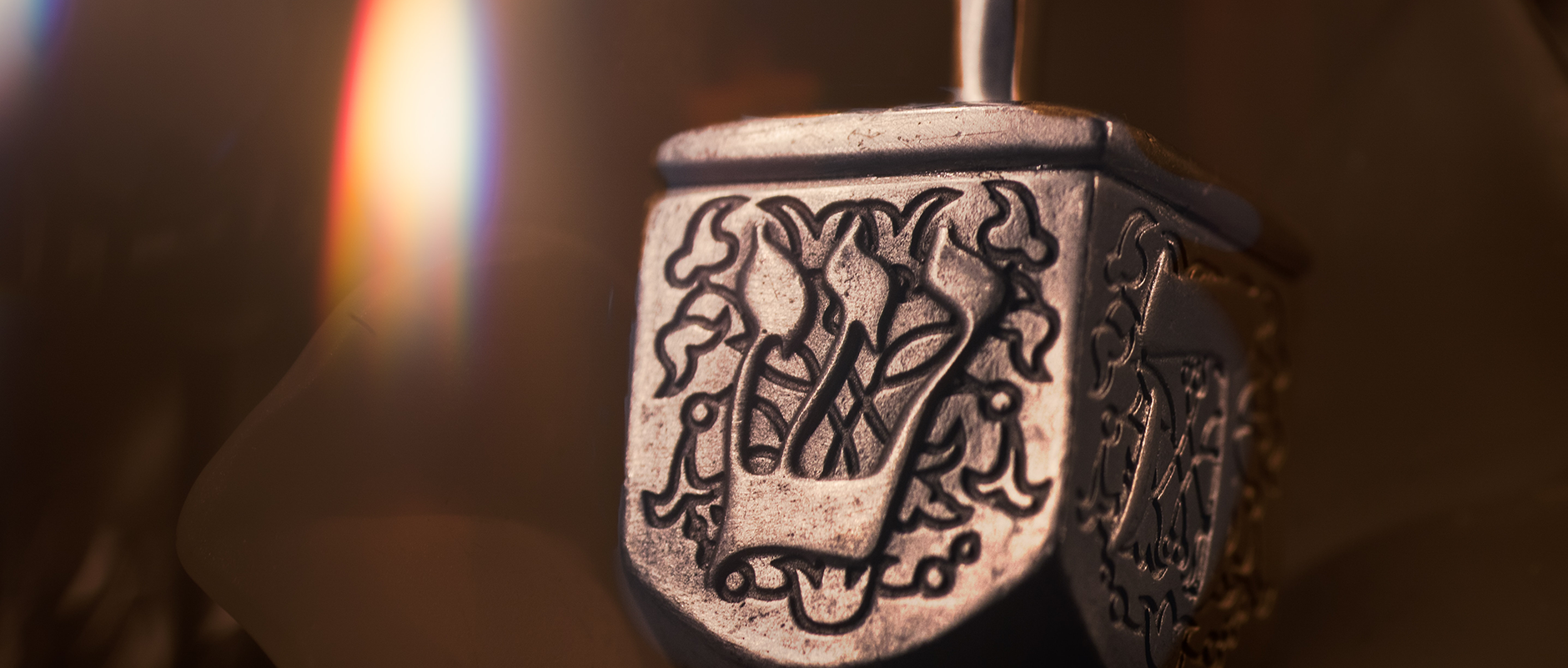Jewish Wedding

The Rituals to a Blessed Jewish Wedding
Mazel tov! Must have been what Laban said to Jacob after he enthusiastically unveiled his kallah or bride and found, Leah. As a chatan or groom, his father in-law had tricked him. The second ritual in a traditional Jewish wedding dispels this by ensuring that only the chatan does the veiling.
Traditions and Customs
Traditions and customs in a Jewish wedding are not only a precaution about the past but also symbolize divine blessings on a new union. The ceremony has remained the same for thousands of years since biblical times, despite minor adjustments to suite modern Judaism.
A typical Jewish wedding proceeds as follows:
- It starts off at a pre-wedding reception also known as Kabbalat Panim.
Traditionally the couple begin fasting right before this ceremony that includes them being in separate adjacent reception rooms. The chatan is read and sang to as the kallah receives encouragement from family and friends. To mark the end, the mother in-laws break a plate. This is done to indicate commitment to the relationship. - The second ritual is called the veiling of the bride or Badeken.
The groom gets to place a veil over his bride’s face to symbolize the value he places in her inner beauty over her outward temporary beauty. After the veiling, the parents bless the kallah before proceeding to where the canopy is set up. - Then there is a wedding procession.
Here, escorts holding candles, lock elbows with the couple and leads them to the Chuppah. - The bride or kallah is escorted to a marriage canopy. Popularly referred to as the Chuppah, most of the marriage ceremony is conducted under the structure.
There are many biblical symbolism associated with the canopy or Chuppah. One of the customs is to have it under the stars to symbolize God blessing Abraham to have as many children as the stars. This is the place the bride circles the groom seven times to figuratively build a new world as a couple just as God created in seven days. The structure could be stand alone or held up by attendants. As a symbol of a new home, the chuppah is designed with open sides just like Abraham and Sarah’s tent represented open hospitality. The couple doesn’t wear jewelry while under the marriage canopy to attest that the union is not based on material things but their personality. - Now, the ceremony officially begins with, the Betrothal, also known as Kiddushin.
Here, the chatan puts a ring on a kallah’s finger while declaring that the bride has been consecrated to him by Law of Moses and Israel. The act is only deemed valid in the presence of two witnesses. The custom according to the Torah is that only the groom gives a ring to his bride under the canopy. After ceremonial blessings the couple is now officially newlyweds and that marks the end of the first half of a Jewish wedding. - Immediately after exchanging the ring, a marriage contract or the Ketubah is read out aloud. Then signed by two witnesses.
A Ketubah is a legally binding document that outlines the chatan’s responsibility to his kallah. The document then becomes the possession of the wife. - The officiator or rabbi then recites the Sheva Brachot or the seven blessings. These recitations are meant to affirm faith in the creator and blessings on the marriage. The prayers are concluded by the couple drinking some wine from the cup they have been holding throughout the recitations.
- To end the ceremony a glass wrapped in cloth is stepped on by the groom in remembrance to the destruction of Jerusalem. At the moment the glass shatters everyone shouts, “Mazel tov!” A Jewish exclamation that means, congratulations or good luck.
- Right after the newlyweds get some private time alone in a room called the Yichud or the seclusion room. Here, they get to customarily exchange gifts and have something to eat after fasting since the beginning of the ceremony.
- After a few minutes in seclusion the couple head to the wedding reception. The wedding party may decide to have it in another location depending on preference.
This is a time to be glad and merry. The guests join husband and wife in song and dance. Traditionally the men dance separately from the women after a mechitzah or partition is placed between them. After the dancing the couple joins their parents and VIP guests at the high table. The groom goes on to recite a blessing while holding a large special Shabbat bread called challah. After blessing it, the special loaf gets shared with among the crowd. At this point everyone gets to dig in and enjoy the meals provided. - A Jewish wedding is never complete without Grace after Meals.
Grace after Meals is a sequence of seven blessings that are recited over the drinking of wine. Six honored guests get to recite the blessings as they hold the Sheva Brachot cup. Sheva Brachot or the wedding blessings are recited to instill divine blessing into the couple’s new life. For a week after a Jewish wedding ceremony relatives and friends of the newlyweds honor them with meals and Sheva Brachot is recited after every meal.
Mazel tov! These are some of the necessary rituals that make up a blessed Jewish wedding. Different Jewish groups may opt to carry out some steps before others but the procedure has always remained the same. For example the Sephardim break the glass at the end while the Ashkenazi usually breaks it before the Ketubah gets read out aloud.
The Jewish Wedding Attire
The chatan covers his head with a yarmulke or the kippah. The purpose of covering one’s head is to show respect of God. After wearing a suit or tallit also known as a prayer shawl, he puts on a kittel or white cotton robe over his shoulder.
The kallah is dressed in a traditional white wedding gown with a high collar. The shoulders and elbows are supposed to be covered. Their faces also get covered by a veil, a tradition that dates back to Laban and Jacob’s biblical times.
Male guests are at liberty to wear suits as women should dress modestly. The dress code is sometimes dependent on the venue of the Jewish wedding. Jewish wedding held at a synagogue will require women to cover their shoulders.
As much as the dress code for a traditional Jewish wedding may resemble that of a modern western wedding, there are a few things that do not feature in an American wedding.
For instance a traditional Jewish wedding can never take place during Shabbat. Shabbat is the period between Friday evening and Saturday evening, precisely after sundown. They are not also held during any of the holidays on a Jewish calendar. This is in contrast to a majority of American weddings that are always held on a Saturday and every other holiday.
Settling the Bill
One of the main purchases for a Jewish wedding is the Chuppah or canopy, a symbolic structure absent from American weddings. The canopy is paid for by the bride and her family.
A Jewish wedding may differ slightly from an American wedding in terms of cost sharing.
Here is a list of items the kallah and her family is responsible for providing:
- Paying for the synagogue and the music there.
- Buying the bride’s dress and accompanying accessories.
- All the floral arrangements to be used at the ceremony.
- Arranging for video and photographs.
- Organizing for an engagement party.
- Settling all bills for services like catering and decoration.
- Settling wedding party’s transportation costs.
- Paying for all wedding print outs and advertisement.
- Paying for the chatan’s ring.
On the other hand here is a list of what the chatan and his family pays for:
- Paying for the kallah’s ring.
- Buying the liquor and hirings a band or DJ.
- Hosting rehearsal dinner.
- Paying for honeymoon.
- Paying for corsages, boutonnieres and bride’s bouquet.
- Paying for groom’s clothing.
- Settling the marriage license fees and hiring the officiant.
Apart from the above split, the attendees usually pay for their shoes and attire. Once everything has been paid for it’s time for enjoyment.
Entertainment
The music at a traditional Jewish wedding is dominantly, Hora, a term for popular Jewish themed traditional songs. Non-strict Jews will rarely have a mix of non-Jewish songs at a traditional Jewish wedding. Traditional Jewish music is played when the kallah enters and at the end of the ceremony.
Dance music is mainly performed at the reception after the couple emerges from the Yichud. Men will dance separately from the women at a traditional Jewish wedding reception.
In terms of meals, kosher foods are a preference among many Jews. Kosher foods are meals that are prepared properly according to dietary laws known as Kashrut. These are laws laid out by the Torah on how food should be handled and what should be regarded as food.
The two Jewish ethnic groups may opt for slightly different meals. The Sephardi will go for spicy chicken, lamb with couscous or rice while their cousins the Ashkenazi Jews enjoy roast chicken, vegetables and potatoes.
Conclusion
The Jews have observed the same rituals that make up a traditional wedding for millennia and they are not about to change. The main believe is that these steps are necessary to instill divine blessings into the lives of newlyweds. The Jewish nation attributes their historical prosperity to their strict adherence to the wedding rituals as outlined in the Torah.







